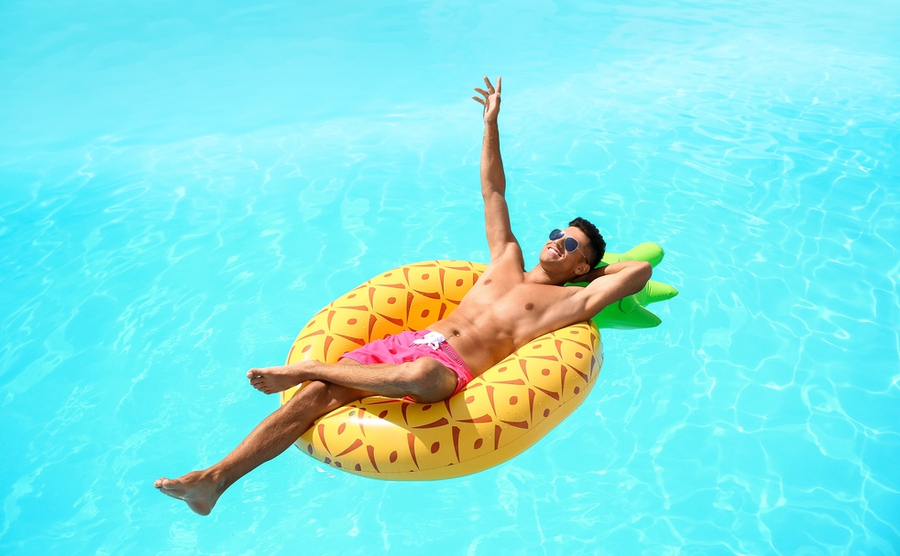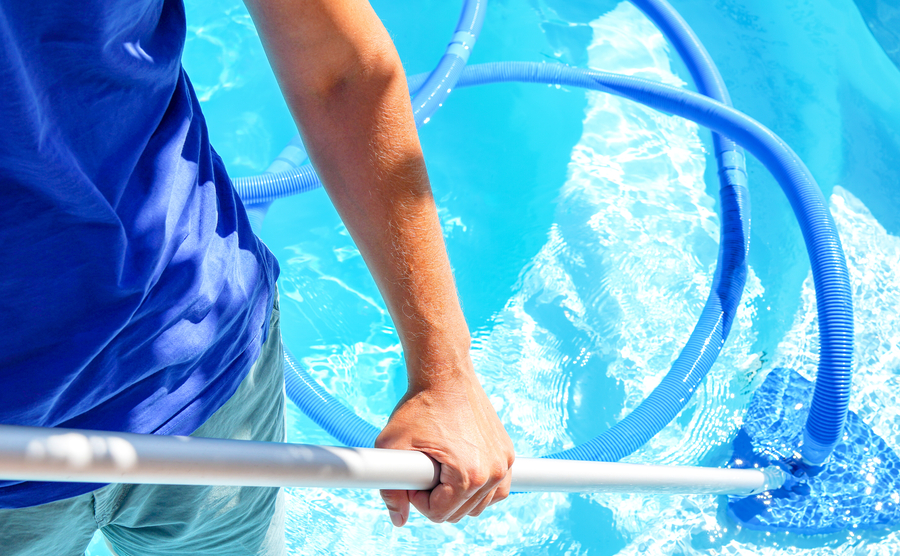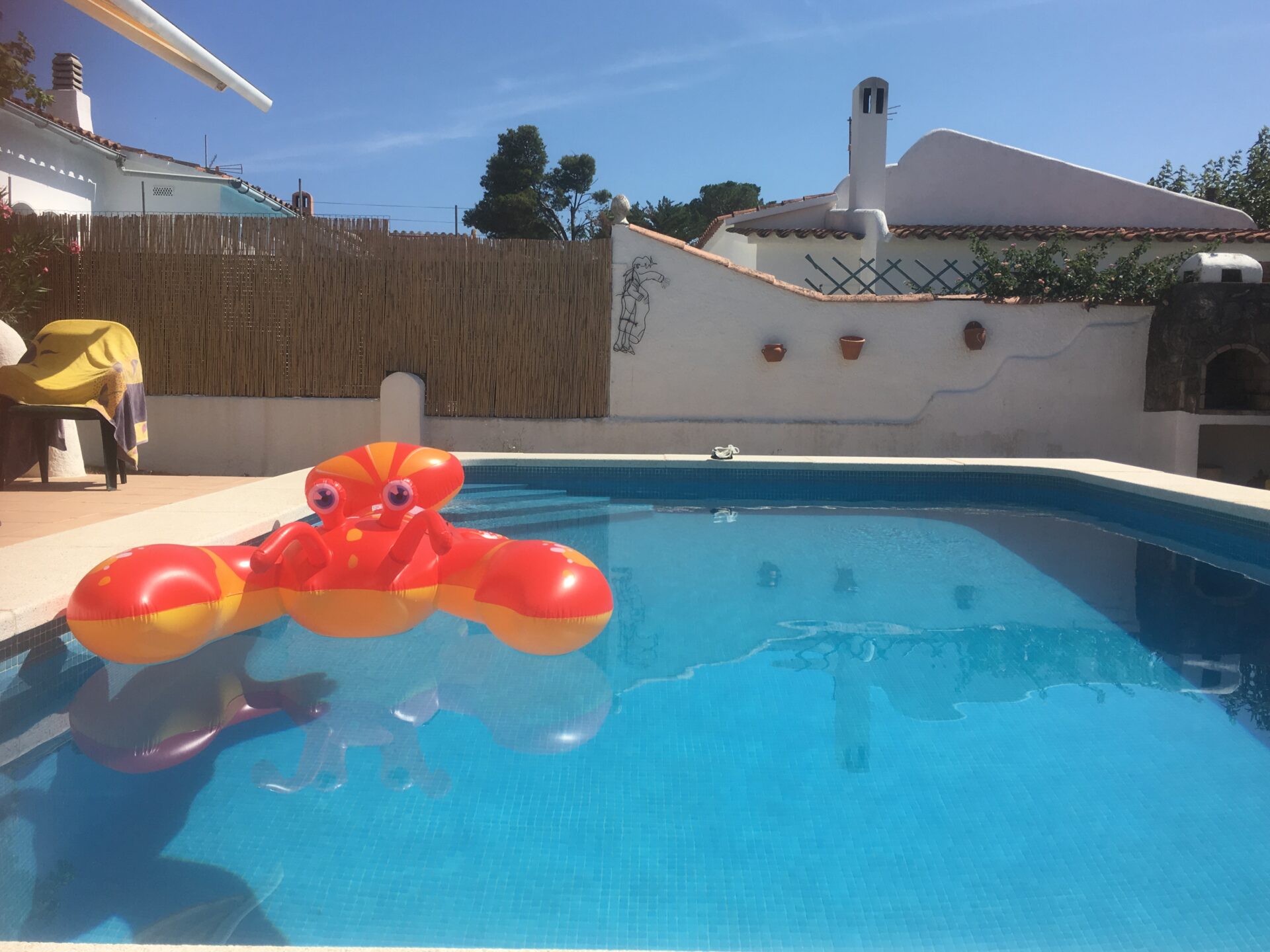Whether to have a private pool or not is a tricky decision you may well have to make when choosing your perfect overseas home. Second homeowner in Spain, Richard Way draws on his own experience and offers tips to help you decide…

Owning your own pool…the dream of the overseas home owner?
Sprawled dreamily on a floating lilo, the sunshine warming your bronzed torso, cold drink in hand… It’s the image that sells the holiday home dream to many people. You just need to decide whether you want to share your precious swimming pool moments with your neighbours or have them entirely to yourself and family. In other words, do you stretch your budget to include a private pool or not? Here are some pointers.
Is it worth it?
There’s no right or wrong answer. It really depends where you sit on the practicality versus luxury spectrum. Running a private pool takes organising and brings with it extra expense and responsibility. We all know that. The idea can seem daunting at first, especially if it’s your first time and you’re not there most of the year. If money isn’t an issue, then swallowing the cost of a pool maintenance man is an easy and obvious solution. For more practical minds it comes down to usage, ie whether you can justify the ‘baggage’ that comes with it against how much annual use it will get.
Owning a holiday home is meant to be enjoyable – it’s no use having a pool but constantly cursing the bills and maintenance requirements that come with it. Don’t get one just because you can, ie you might be able to afford one. If you’re wavering, choose a property on a complex or community with a shared pool that is taken care of by the on-site management – you’ll sleep easier at night back at home.
It’s a big tick for holiday lets
For properties in holiday destinations, properties with pools are the most popular and generate the best returns in the vacation rental market. So, if maximum letting income is a priority for you and your budget allows, a private pool is a no-brainer. Speaking with two management agencies in Spain earlier this month, both told me the three key things a property needs to attract the best summer rentals are a decent bathroom, decent kitchen and a pool! Makes sense.
It’s a focal point
Typically, in summer destinations a pool is the most prominent feature of a property, whether rented out or not and as such adds value. Interior living spaces lead to it, balconies and windows look over it and daytime or evening, people sit around it (when they’re not in it). Given half the chance, kids will spend all and every day in it, wrestling each other off inflatables until their lips are blue and they’re shivering like they’re on a spin cycle. And I soon realised, days spent around the pool meant we weren’t spending money unnecessarily elsewhere – you feel like you’re getting value for money.
Keep on top of maintenance

Consider who is going to keep on top of keeping the pool clean, especially if you’re not going to be there full time.
Unless you’re resident at the property or at the very least there on a monthly basis, you’ll need someone to look after the pool. Speak to swimming pool maintenance companies direct – often just a one-man band who has a few clients they look after, otherwise local management agencies will have preferred people they use. Your agency will offer to take care of this if you’re using them for rentals anyway. Or, you might be lucky enough to have a resident neighbour who offers to maintain it for you.
Where I am in the Costa Brava, the going rate for a firm to maintain a pool is around €1,500 a year, excluding any unplanned repairs. This includes regular checks, chemicals and cleaning. Previously I have left my pool alone over the winter months, letting the water become murky. This meant I paid just for just six months maintenance over the spring and summer, but had to pay a one-off fee for the cleaning and preparation of the water in time for the summer. If you choose this route, rather than leaving the filters on just enough to keep the water clean over the winter months, get a decent cover for it.
Other costs to consider include paraphernalia, such as nets and vacuum heads and parts for the pump that need replacing from time to time. Be prepared for increased electricity and water bills in the summer months too, when the pool is used regularly – the pump will need to run more and the water level will need topping up! Not forgetting the fun stuff, namely various forms of inflatables, which typically burst and need replacing every year!
Is it legal?
First off, when you purchase a property with a pool, you or rather your lawyer should check a pool is legally allowed to be there. That’s to say the property has all the necessary permissions. In Spain, as in pretty much all European countries, you need to apply for planning permission and obtain a licence to build a pool, however small – a not uncommon scenario, especially in rural areas, is for pools to be built without permission. Although retrospective planning permission can often be granted, there is no certainty of this. It’s simple to check a pool’s legal status – it should be registered on Spain’s property register and ‘catastro’.
Check the condition
When you’re looking at property, it’s not a bad idea to get someone to check the condition of the pool and pump for you, even ask to see the filter system running. The lining of a pool, especially if it’s tiled, should be inspected, as these do need replacing after a number of years. As a new owner, you don’t want the nasty surprise of a hefty repair bill that you weren’t expecting when you signed on the dotted line. And if major repairs to the pool are required you could use this to negotiate the price.
Make safety a priority

Richard’s pool in the Costa Brava.
Next, you need to consider safety. Different countries have different regulations regarding safety around swimming pools. In France, for example, private pools that are in-ground or at ground-level must be protected by a security device at all times. This is according to the Raffarin Law.
While other popular countries like Spain might not have such stringent rules for private pools, this is not a reason not to use your common sense and take your own measures to ensure safety. As a family, we enforced rules when the children were younger and which stuck with them through the years. This is especially important if you will be renting your property – a pool that looks unsafe to a family is an immediate turn-off. In most countries, the rulebook rules kick in heavily when pools are shared by more than one property, such as within communities and on resorts. This is when stipulations such as gated entry and life-guards become necessary.

